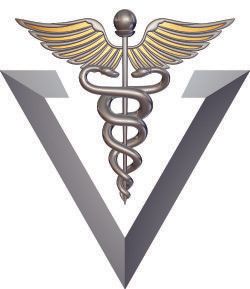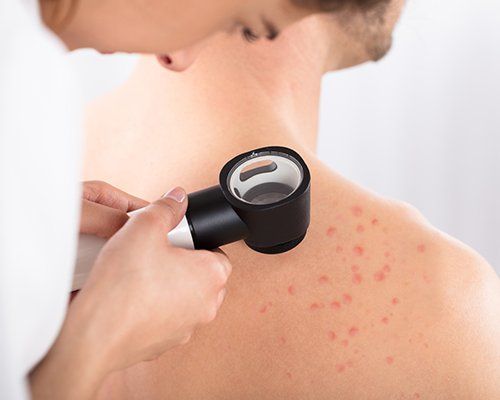Address:
415 Orange St. Redlands, CA 92374
Second Office at
15366 11th St., Suite K, Victorville, CA 92395
Acne Specialist
Acne is one of the most common of all skin problems. Almost everyone will experience pimples or blackheads at some point in life. Acne affects millions of teenagers to some degree and even many adults, especially women. Fortunately, it is also one of the easiest conditions to treat.
Acne affects millions of teens and adults worldwide, causing physical symptoms as well as taking an emotional toll. At the Skin and Laser Centers in Victorville and Redlands, CA, patients receive the most innovative and effective care available to reduce breakouts, prevent scarring and produce clearer complexions.
Acne Myths
Myth #1:
Acne is caused by poor hygiene. If you believe this myth, and wash your skin hard and frequently, you can actually make your acne worse. Acne is not caused by dirt or surface skin oils. Although excess oils, dead skin and a day's accumulation of dust on the skin looks unsightly, they should not be removed by hand scrubbing. Vigorous washing and scrubbing will actually irritate the skin and make acne worse. The best approach to hygiene and acne: Gently wash your face twice a day with a mild soap, pat dry--and use an appropriate acne treatment for the acne.
Myth #2:
Acne is caused by diet. Extensive scientific studies have not found a connection between diet and acne. In other words, food does not cause acne. Not chocolate. Not french fries. Not pizza. Nonetheless, some people insist that certain foods affect their acne. In that case, avoid those foods. Besides, eating a balanced diet always makes sense. However, according to the scientific evidence, if acne is being treated properly, there's no need to worry about food affecting the acne.
Myth #3:
Acne is just a cosmetic disease. Yes, acne does affect the way people look and is not otherwise a serious threat to a person’s physical health. However, acne can result in permanent physical scars--plus, acne itself as well as its scars can affect the way people feel about themselves to the point of affecting their lives.
Myth #4:
You just have to let acne run its course. The truth is, acne can be cleared up. If the acne products you have tried haven’t worked, consider seeing a dermatologist. With the products available today, there is no reason why someone has to endure acne or get acne scars.
We now have many ways to eliminate acne and help restore your skin.
Acne Q & A
- What causes acne?
Acne breakouts occur when the hair follicles become blocked with sticky oil, providing an ideal environment for bacterial growth. As bacteria multiply inside these follicles, they cause inflammation, redness and swelling, as well as pus formation. Sometimes, the follicle may develop a white or black plug. Some people are more prone to developing acne - especially those with a family history of the disease. Acne is also more common during the teenage years when hormones are very active, but it can affect adults as well. Without treatment, acne can cause scarring as well as emotional effects like anxiety and depression. The good news is, there are plenty of effective treatments that can reduce the frequency and severity of breakouts.
- Can acne be caused by the foods I eat?
Many studies have been conducted to determine if acne breakouts might be triggered by specific foods or ingredients, and no direct and conclusive link has ever been found. Likewise, acne is not caused by poor hygiene; in fact, washing or scrubbing the skin frequently or aggressively can actually make breakouts worse and more frequent.
- How is acne treated?
Acne typically requires a combination of treatments to control breakouts, and regular office visits help ensure these treatments remain effective and “tuned in” to the patient’s specific and changing needs. Prescription medications may be very effective, and in-office treatments like photodynamic therapy and Blu-U (blue light) therapy use different wavelengths of light to destroy bacteria lodged inside the follicles. Nonprescription options like topical benzoyl peroxide and salicylic acid can also be effective in managing breakouts, as can a handheld device called Zeno that uses direct heat to destroy bacteria.
- Is there anything I can do to prevent breakouts?
The best way to prevent breakouts and lessen their severity is to see the dermatologist on a regular basis. Acne is one of the most common skin diseases, affecting millions of teens and adults in the U.S. and worldwide. Because the skin changes with age and other factors, seeing the dermatologist routinely is the best way to make sure treatment remains tailored to your specific needs so you can enjoy clearer, healthier skin.
Treatments
Non-Prescription Treatments:
Benzoyl Peroxide
Can be very effective in treating mild cases of non-inflammatory acne. It's also safe for children as well as adults, and may be combined with other topical or oral treatments. Benzoyl Peroxide cleans out the bacteria that can block pores. It is available over the counter in gels, creams, lotions, and cleansers. Concentrations range from 2.5% to 10%. Side effects are mild, the most common being dryness of the skin.
Salicylic Acid
Is a mild acid that encourages the peeling of the top layer of skin and the opening of pores. Like benzoyl peroxide, it can be found in many over the counter products with concentrations ranging from 0.5% to 2%. Side effects are also mild, and if skin becomes too dry consider a lower concentration and compare your skin care products for similar cleansing agents that could be causing excessive dryness.
Zeno
Is a handheld, portable electronic medical device that is clinically proven to make pimples disappear fast. It applies a precisely controlled heat dose directly to the pimple through a metal pad. The heat causes the bacteria to self-destruct, and when the bacteria dies, the pimple goes away. Zeno does not replace good skin hygiene or a doctor's care. It is designed to treat mild to moderate acne. Other therapies, depending on the severity of your acne, may be recommended by your dermotologist.
Retin-A
is a topical cream that is a derivative of Vitamin A and is a very effective and safe treatment for comedonal acne, more commonly known as whiteheads and blackheads. It works by increasing skin cell turnover, which helps clear clogged pores. It also helps prevent the formation of acne.
For more information on Retin-A and other ways we can treat and eliminate acne, contact our office to set up an appointment.
Dermatologist Services:
PhotoDynamic Therapy (PDT)
Is a treatment performed with a topical photosensitizing agent called Levulan that is applied to your skin and then activated with the correct wavelength of light. PDT has a unique ability to minimize pores and reduce oil glands - effectively treating stubborn acne, Rosacea, and improving the appearance of some acne scars.
BLU-U (blue light acne treatment)
Uses a very special blue light that can kill the p. acnes bacteria in your skin. Treatments are simple - you simply sith with your face close to the light for a short time at a schedule set up by your doctor, usually a 15-minute session about once or twice per week. The treatments may go on for five weeks or so. It's very safe, it's not hot, it's not painful at all. After some weeks, the blue light can control your acne, or clear it up for a very long period.
BROWSE OUR WEBSITE
CONTACT INFORMATION
Address: 415 Orange St. Redlands, CA 92374
2nd Office: 15366 11th St., Suite K, Victorville, CA 92395
Email: contactus@hdskincenter.com
BUSINESS HOURS
- Mon, Wed, Fri
- -
- Tue, Thu
- -
- Sat - Sun
- Closed







OUR LOCATIONS
For informational purposes only, a link to the federal Centers for Medicare and Medicaid Services (CMS) Open Payments web page is provided here. The federal Physician Payments Sunshine Act requires that detailed information about payment and other payments of value worth over ten dollars ($10) from manufacturers of drugs, medical devices, and biologics to physicians and teaching hospitals be made available to the public.
BROWSE OUR WEBSITE
CONTACT INFORMATION
Address: 415 Orange St. Redlands, CA 92374
2nd Office: 15366 11th St., Suite K, Victorville, CA 92395
Email: contactus@hdskincenter.com
BUSINESS HOURS
- Mon, Wed, Fri
- -
- Tue, Thu
- -
- Sat - Sun
- Closed







OUR LOCATIONS
For informational purposes only, a link to the federal Centers for Medicare and Medicaid Services (CMS) Open Payments web page is provided here. The federal Physician Payments Sunshine Act requires that detailed information about payment and other payments of value worth over ten dollars ($10) from manufacturers of drugs, medical devices, and biologics to physicians and teaching hospitals be made available to the public.

